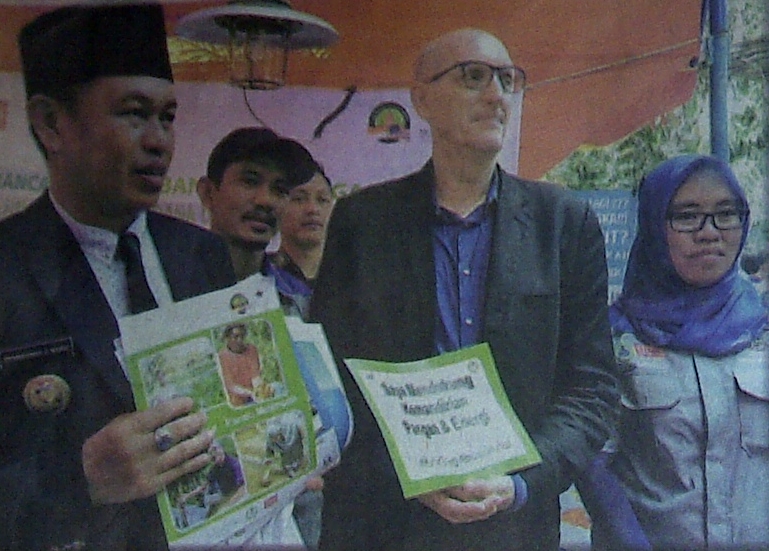
Koran Fajar Sulsel, Pangkep – The residents of Pangkep Regency deserve to be proud. As they have found the solution to deal with the LPG prices which constantly fluctuated every year. They simply utilise their cattle manures and convert them into biogas.
This programme has been initiated. Batara Village, Labakkang Subdistrict becomes the first place to adopt the biogas utilisation. The local residents are encouraged to utilise the manures primarily for a biogas conversion purposes.
Simply build a biogas reactor, and the residents are ready to convert the manures produced by their cattles into a gas which they can use for their cooking purposes.
The Pangkep Regency administratives greatly support such programme. Equally responded with postive feedback, Hivos, the organisation which is highly involved in providing alternative energy expressed its readiness to support the community to utilise the biogas.
“Praise the Almighty as we have found the solution to deal with our gas needs. It is true that today the community is highly addicted to the LPG. However, constantly increasing LPG prices have made the people uneasy. We, the government, are ready to offer a solution. Together with Hivos, we may further develop cattle manure processing and conversion into biogas which is both low cost and beneficial,” uttered the Regent of Pangkep, Syamsuddin A. Hamid during the launch of biogas energy utilisation campaign in Batara Village, Wednesday, December 21.
Syamsuddin A. Hamid promises to support the programme managed by Hivos to achieve the success. He then prepared Batara Village in Pangkep Regency as the location of a pilot project. “We start with this location. We shall exemplify and motivate other regions. This is the first region to adopt the biogas utilisation,” he uttered.
The Hivos SEA Green Energy coordinator, Robert de Groot, revealed that this programme offers the solution to the limited availablity of energy supply. By utilising the biogas, the community may enjoy numerous benefits, primarily due to its low costs and utilisation of manure sludge into fertilisers.
“It is possible that total costs expended by the community to purchase the LPG annually maybe three times greater in comparison to the expenditures of utilising the biogas. We are ready to help the community to achieve the success with this programme and serve as the advocate,” he explained.
Renewable energy such as this biogas is the most appropriate technology for farmers or cattle farmers, provided that they have their own cattle whether it is a cow or a goat.
“It has significant potentials to reduce government’s expenditure in acquiring the gas, especially for household needs,” the Dutch man continued.


